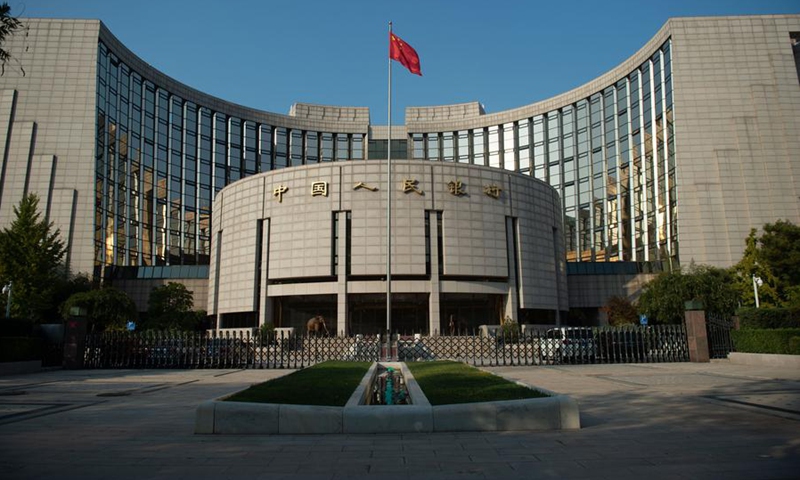
File photo shows an exterior view of the People's Bank of China in Beijing, capital of China. (Photo: Xinhua)
The People's Bank of China (PBC), the central bank, on Monday unveiled a new monetary policy tool to keep liquidity reasonable and ample in the country's banking system, which an analyst said is part of a raft of incremental pro-growth policies to boost the economy.
According to a statement on the PBC website, it started the so-called outright open market reverse repo facility on Monday, with operations scheduled once a month and a tenor of no more than one year.
The move aims to help "maintain reasonable abundance of liquidity in the banking system and further enrich the central bank's monetary policy toolbox," the PBC said.
A repo is a form of short-term borrowing in money markets, involving the purchase of bonds with an agreement to sell them back on a specified date.
"The new tool is a further enrichment of the country's monetary policy toolkit," Zhao Qingming, a Beijing-based veteran financial expert, told the Global Times on Monday.
The PBC's liquidity toolkit mainly includes seven-day reverse repos and a one-year medium-term lending facility, as well as treasury bond purchases and reserve requirement ratio cuts for injecting long-term liquidity.
With the introduction of outright reverse repos - which may include tenors of three months and six months - the central bank has a new tool to manage liquidity in the banking system for periods ranging from one month to one year, Zhao said.
"With ample liquidity, financial institutions will better support the real economy and contribute to steady economic growth," Zhao said, noting that the new tool can be seen as part of a package of incremental policies recently announced by the Chinese central government.
Pan Gongsheng, governor of the central bank, said at the Annual Conference of Financial Street Forum 2024 held in Beijing on October 18 that the PBC is considering a reduction of 0.25 to 0.5 percentage points in the reserve requirement ratio at an appropriate time before the end of 2024, depending on market liquidity changes.




